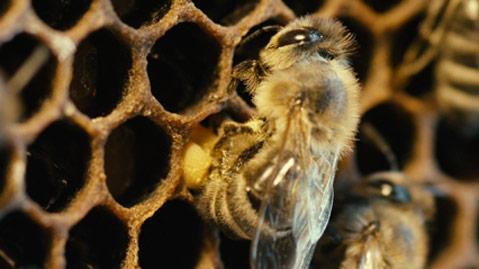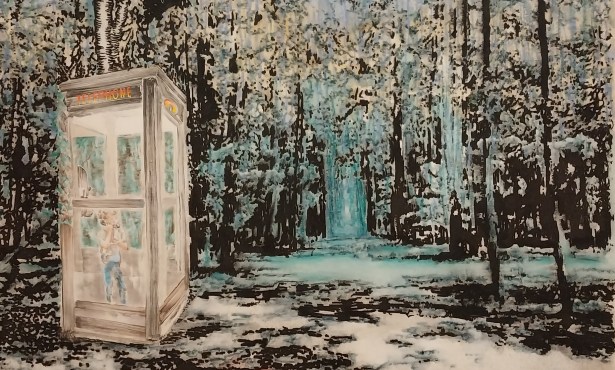More than Honey
Director Markus Imhoof

Bees are probably more important to the welfare of modern mankind than any other insect or animal species on the planet, and yet, as the buzzing bug’s population plunges worldwide due to disease and other pressures, very few of us even seem to care. Those are just a couple of the eye-opening conclusions that come from watching More Than Honey, a documentary by Swiss feature film director Markus Imhoof that’s been screening during the Santa Barbara International Film Festival this week.
The grandson of a beekeeper and father of a bee scientist, Imhoof delivers a fascinating, globe-trotting tale of the magical life of bees, the planet-spanning distribution market that’s been raised around them, and the ongoing mysteries surrounding colony collapse disorder. From the Swiss Alps and California’s Central Valley to the Chinese countryside and glimmers of hope in Australia, More Than Honey packs more information, drama, beauty, science, and characters than your usual doc, which could be expected from five full years of work and four trips around the globe. This week I contacted Imhoof by email to ask a few more questions about his film.
When did you realize that your family’s work should be the subject of a documentary?
I am actually a fiction filmmaker, but through the work of my daughter and my son in law, who are both bee-scientists, I got aware of the dying bees all over the world. So I threw away my screenplays for actors and embarked on a journey to find out the reason why the bees are suffering.
How aware is the general public of how integral bees are to much of our food?
I am very much astonished how little people know about bees and about the importance of them. Many people don’t know the difference between a wasp and a bee. They think that the food is just coming from the supermarket.
Could humanity survive as we know it without bees?
One-third of everything we eat is due to bees, and it is the more more flavorful and healthier part of it, since staples like rice and other grains are pollinated by the wind. In a hamburger, there would be no salad, no onion, no ketchup, no mustard, and not meat from cows that have never eaten any clover. The world would be like black and white, because 80 percent of the plants would be gone.
How were you able to get the close-ups of hives, the flying shots of the bees, and all of the excellent footage of bees in action?
We had two teams: a documentary team composed of five people and a macro-team with 10 people and very sophisticated cameras and macro-lenses, some of which are also used for operating on human bodies. We also worked with little helicopters and had a “bee whisperer” who spoke to the bees with odors.
The so-called mystery of colony collapse disorder seems very clearly to be a result of the industrialization of beekeeping.
Not only industrialization of beekeeping, but the industrialization of everything, mainly the whole world of modern agriculture. Monocultures are destroying the biodiversity and are El Dorados for parasites. Every totalitarian concept needs a very harsh police force, and these are the pesticides.
Killer bees are presented as possible saviors, but how’s their honey?
The so called “killer-bees” are healthy and make more honey than the other ones. It tastes the same as the other honey, because the flavor comes from the flowers. They do have problems in cold climates, however. It’s possible that we could breed semi-killer-bees, which are not so defensive as the real ones.
There are parts of the film — like when you describe the industrialization of bees as man turning “wolves into illness-prone poodles” — that verge on Werner Herzog. Is there a school of German-Austrian-Swiss filmmaking that calls for filmmakers to interject philosophy?
I have met Herzog only once, he is a lone wolf….
Our European films developed in the ’60s as “auteur films,” based on the nouvelle vogue and the Italian neo-realismo. When the auteur serves as the starting-point for filmmaking, the films are naturally more personal than marketing-based film production.
More Than Honey screens on Wed., Jan. 30, 4:40 p.m., and Sat., Feb. 2, 2 p.m., both times at the Metro 4.



